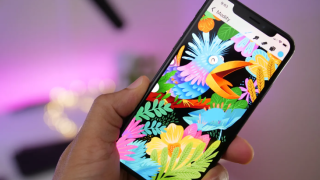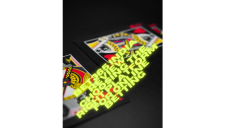Madras High Court Said That Linking Aadhaar With Social Media Accounts Was Not Possible
Aadhya Khatri - Aug 26, 2019

Linking accounts to Aadhaar will break the Supreme Court’s original ruling which states that the IDs can only be used for government welfare schemes
- Photos In WhatsApp Chats Will Self-Destruct If This Feature Comes To Life
- How To Export Your Old Messages From Social Media
- WhatsApp Defends Its Updated Privacy Policies, What Does It Have To Say?
The Madras High Court said earlier this week that any linking between social media accounts and Aadhaar was not possible.
According to Justice S. Manikumar, linking accounts and emails to Aadhaar will break the Supreme Court’s original ruling, which states that the IDs could only be used for government welfare schemes.

This was the High Court’s response to two PILs (short for Public Interest Litigation) made in 2019 saying that:
The case’s scope is now expanded to WhatsApp to consider the possibility of tracing the senders of messages responsible for spreading fake news. The messaging app has said over and over again that doing so would violate the encryption that ensures users’ privacy.
The Court has made a similar answer in June to petitioners to rule out the practice of connecting social media sites to government IDs.
The 19th of September will see the next hearing takes place. Facebook, the company that owns WhatsApp, has said to transfer all related case, including this one, to the Supreme Court. The plea hearing for the transfer will occur on the 13th of September.

The last few years have seen several experts, activists, and technologists showing their opposition against Aadhaar – India’s identification program. The reasons they cite are problematic implementation, overreach, and concerns of privacy. However, nearly a year ago, the Supreme Court declared that the program was valid and constitutional.
The five-judge bench said that the program was necessary to make the marginalized section of the society possible and that it did not violate the privacy of Indian citizens.
Featured Stories

Features - Jan 23, 2024
5 Apps Every Creative Artist Should Know About

Features - Jan 22, 2024
Bet365 India Review - Choosing the Right Platform for Online Betting

Features - Aug 15, 2023
Online Casinos as a Business Opportunity in India

Features - Aug 03, 2023
The Impact of Social Media on Online Sports Betting

Features - Jul 10, 2023
5 Most Richest Esports Players of All Time

Features - Jun 07, 2023
Is it safe to use a debit card for online gambling?

Features - May 20, 2023
Everything You Need to Know About the Wisconsin Car Bill of Sale

Features - Apr 27, 2023
How to Take Advantage of Guarantee Cashback in Online Bets

Features - Mar 08, 2023
White Label Solutions for Forex

Review - Jul 15, 2022

Comments
Sort by Newest | Popular